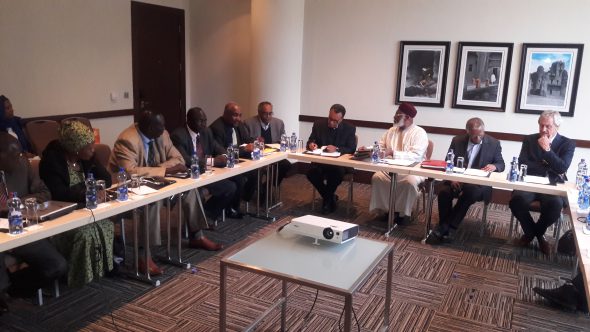Sudan reveals ongoing efforts to resume Two Areas talks this month

January 9, 2018 (KHARTOUM) – The Sudanese government has disclosed ongoing arrangements to resume the Two Areas talks with the Sudan People’s Liberation Movement/North (SPLM-N) during this month.
The Sudanese army has been fighting the SPLM-N rebels in the Blue Nile and South Kordofan, also known as the Two Areas since 2011.
Talks between the Sudanese government and SPLM-N for a cessation of hostilities and humanitarian access are stalled since August 2016.
The SPLM-N is now divided into two factions: one led by Abdel Aziz al-Hilu and the other led by Malik Agar. The rift emerged last year over the right of self-determination and other organisational issues.
Sudan’s presidential assistant and head of the government negotiating team Ibrahim Mahmoud Hamid Tuesday disclosed that intensive efforts are underway to resume talks with the SPLM-N.
He told the semi-official Sudan Media Center (SMC) that the government “wouldn’t accept any preconditions or crippling terms that could hinder the peace talks and the Two Areas negotiation process”.
Hamid expressed readiness to negotiate with any party that seeks to achieve peace in the country.
Sudan’s chief negotiator further stressed the peace talks would resume this month, saying however the date has not yet been definitely decided.
last September, Abdel-Rahman Abu Median, member of the government negotiating team, said they wouldn’t negotiate with an SPLM-N Agar faction, pointing the group has no ability to implement what will be agreed upon.
The SPLM-N al-Hilu has a similar point of view as they say there is no split within the rebel movement, but only a change of leadership stressing they have the SPLA-N support.
On the other hand, the SPLM-N Agar recognizes the rift and proposes to form a joint delegation. If this proposal is rejected they propose to coordinate with the SPLM-N al-Hilu.
The African mediators met the two factions last August, but they didn’t fix a clear position on the matter, while the facilitators from the Troika countries and the European Union also didn’t determine a unified position on the matter.
(ST)
